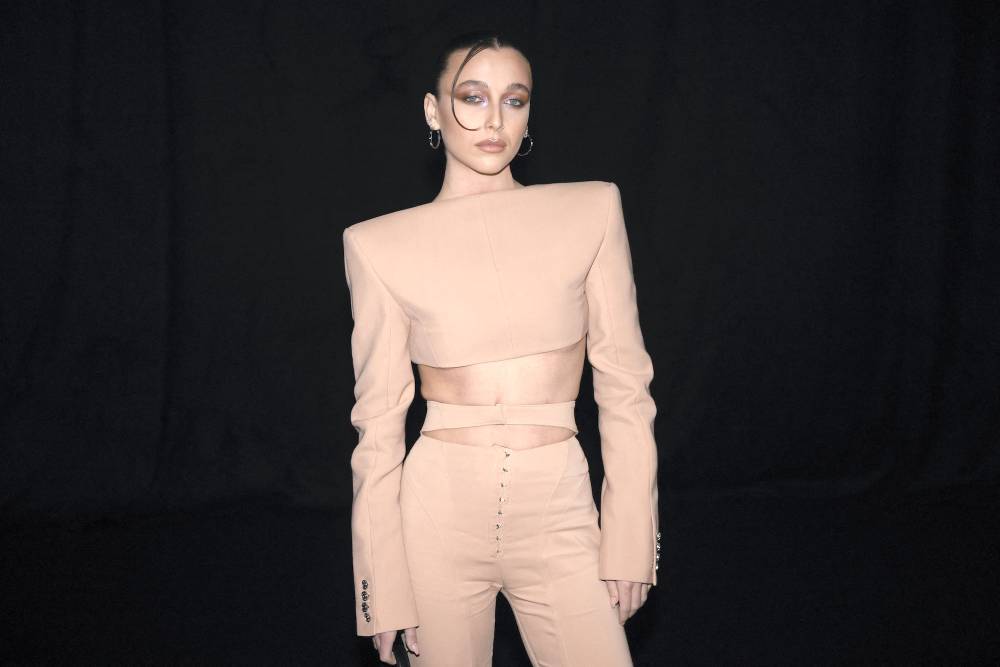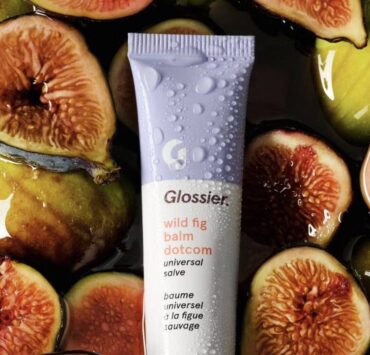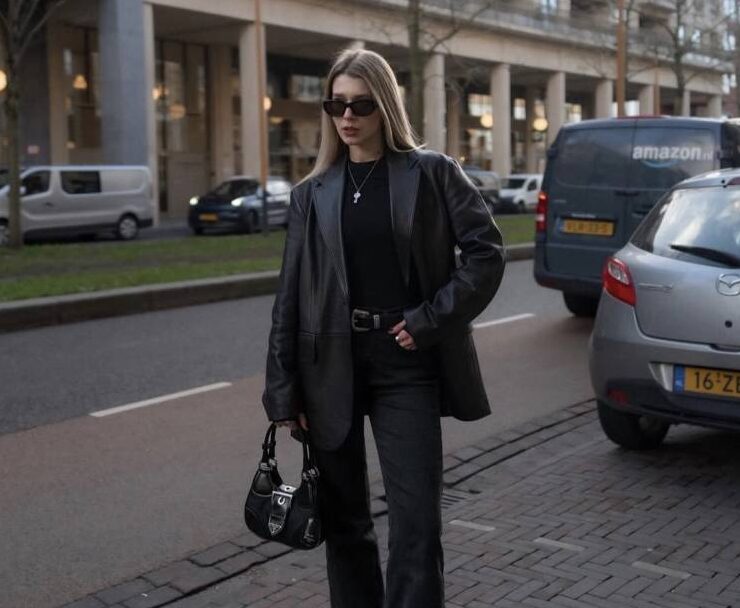Don’t be offended. It’s just the Gen Z stare

TikTok has been blowing up with skits about the Gen Z stare phenomenon. In trendy coffee shops, a millennial stands in line, donning a lightweight Lululemon hoodie, legs snug in workout leggings, tresses spilling out of a messy bun. In a high-pitched voice, they order with a toothy grin, saying something like, “Hi! Can I please get an iced oat milk latte, with just one pump of vanilla? If that’s okay. Thank you so much!”
Meanwhile, behind the counter is a skinny Gen Z barista in a reworked vintage crop top, high-waisted jeans, standing still, staring straight ahead. “Is that all?” they say in a detached tone, unsmiling.
The millennial falters, eyes darting. You can practically hear them panicking internally. “Was that too much? Did I say something wrong?” But the barista is unfazed. As the coffee gets made, you’re wondering what just happened?
Well, that’s the Gen-Z stare.
So what is the Gen Z stare, really
When I asked my brother-in-law, who is in his mid-20s, what the Gen Z stare is, he answered immediately (in a slightly deadpan tone), that it’s something you do when you don’t want to make small talk.
Fair. But it’s deeper than just avoiding chit-chat. Writer Dani Di Placido, in a Forbes piece, said this stare shows up most often in customer service settings. “Servers and bartenders claim that their Gen Z customers respond to unexpected questions or small talk with the stare, as though simple conversation is not worth pursuing,” he explains.
But it’s not a hostile move. It seems to be more of a refusal to engage performatively. “One representative of Gen Z declared that the stare was likely a symptom of ADHD and trauma,” Di Placido adds, “[while] other commenters pointed out that this was a very Gen Z explanation.”
And then, there’s the New York Times article by Nicole Stock, which earlier this year referred to the Gen Z stare as signaling a “complete lack of f***s.” That about sums it up.

A social shift
It’s neither anger nor passive-aggression, yet most of the younger generation are now appearing impassive. But where did this Gen Z stare come from in the first place?
Gen Zs grew up with screens and the understanding that attention could be manufactured. And with so much “fake” content online, they are wary, especially of oversharing.
You can see the shift on Instagram. A millennial post will often feature beaming smiles, filled with friends, and positive captions. This gushy selection is something a Gen Z might just find “cringe”—their word for something embarassing, awkward, or uncool.
Meanwhile, Gen Z carousels often feature blurry flash photos in a dirty mirror, random objects, or cryptic captions. If they’re posting a selfie, it’s straight-faced, at a strange angle. With this kind of curation, they’re posting content in a way that doesn’t seem to be oversharing, trying to impress, or performing any sort of joy.
Many point to the pandemic, which upended how the world at large socializes. This rings especially true for the Gen Z population, who were isolated during their high school and college years. Forced to have online classes and masked interactions during a deeply formative phase of life, the whole generation seems to have been conditioned to retreat inward.
More often than not, classroom discussions were silent. Students would stare, indifferent at their screens. They opted to be off-camera and stay on mute. At the same time, customer service became steadily automated. There was also a shift to increased social interactions through digital screens—connecting people merely through highly controlled emojis, reactions, private stories, and anonymous comments.
To add, Gen Zs have grown up in a hyper-judgmental digital society. How often can a comment or post be skewed to mean something different? Especially when everything can be screenshotted and reshared, the best way to avoid being called cringe, canceled, or made into a meme is to say nothing. And stare.
After the pandemic, socialization has become more curated and careful. And I think it’s affected all generations by making them more discerning of where one’s energy is expended.

But are Gen Z really antisocial?
Not really. I’ve read and heard from many that Gen Z is an antisocial generation. But compared to us millennials, I’ve observed that they have better, less scattered social cues. They tend to be more intentional. Whatever comes out of their mouth is pretty polite, often kind, and always inclusive.
So is socializing changing? Maybe it’s just not so people-pleasing.
Not too long ago, being polite meant bending over backwards for outward appearances. Young women had to be chaperoned. There were etiquette books, dinner party calling cards, and written thank-you letters for every small occasion.
Jennifer Grygiel, a social media expert and professor at Syracuse University, isn’t convinced the stare is some kind of generational flaw. “I find Gen Z to be really great at having conversations,” she tells NPR. “If you’re actually engaging them, they will engage you back.”
Grygiel adds that Gen Zs value authenticity above all. “Maybe what we’re witnessing too is some boredom, especially with whom they’re interacting with.” She explains that if interactions feel awkward, perhaps it’s because they haven’t had as much experience going out into the real, non-digital world.
“They don’t know how to fake it yet,” Grygiel states. “And maybe there’s something that’s young and innocent about that.”
Being a zillenial myself—just on the cusp of millennial and Gen Z—I still feel closer to the millennial side of things, especially being raised by late-stage baby boomers. I’ve been brought up that it’s best to always smile, say please and thank you, and constantly apologize. But that manner of existence is changing.
The friendliness scripts are becoming outdated. These scripts, built on over-apologizing and smiling through discomfort, are expiring.
Gen Zs don’t bother with these scripts. They don’t overexplain nor perform politeness in order to please. And maybe that’s a good thing, especially for those of us wired to smile, apologize, and even grovel to make others comfortable.
With the Gen Z stare, maybe they’re not trying to be rude. I think they just don’t want to play along. Because to them, matching your fake energy with theirs isn’t authentic. In their minds, that would be cringe.





















